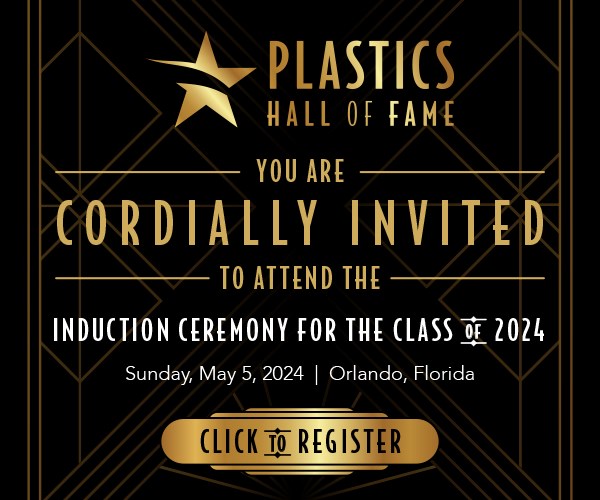Dr. Cato Laurencin: Pioneer in Plastics for Regenerative Medicine
Dr. Cato Laurencin, whose groundbreaking work in plastics and regenerative medicine has transformed health care, was inducted into the Plastics Hall of Fame in 2024. Dr. Laurencin's innovative use of polymers for musculoskeletal applications has revolutionized medical devices and biologics.

Dr. Cato Laurencin, Universidad de Connecticut (EE.UU.)
Source: Plastics Hall of Fame
Dr. Cato Laurencin, inducted into the Plastics Hall of Fame in 2024, stands as a visionary engineer, surgeon and leader whose remarkable contributions have revolutionized the fields of plastics, nanotechnology, biomedical engineering and surgery. His pioneering work in utilizing polymers for musculoskeletal applications has transformed health care and benefited millions worldwide.
Throughout his illustrious career, Laurencin has achieved breakthrough approaches in the use of plastics for medical devices and biologics. His innovative systems for bone and ligament regeneration have introduced technologies that are now widely accessible, improving the lives of countless patients. Inspired by his research, medical devices and biologics developed from polymers have become integral to modern health care with applications that extend across various fields.
Laurencin’s contributions have sparked the development of an entire industry utilizing polymer-ceramics for diverse medical purposes. His work in creating soft tissues with polymers was recognized in National Geographic's “100 Discoveries That Changed the World” edition in 2014, highlighting the profound impact of his research on regenerative medicine.
A seminal paper by Laurencin in the Journal of Biomaterial Material Research in 2002 marked a significant milestone by applying the principles of nanotechnology to tissue regeneration. This groundbreaking article remains one of the most highly cited in materials science papers of all time, underscoring Laurencin's influence and expertise in biomaterials science.
Laurencin's remarkable achievements have garnered widespread recognition. He holds the distinction of being the first scientist-surgeon elected to the National Academy of Sciences, the National Academy of Engineering, the National Academy of Medicine and the National Academy of Inventors. His contributions have been acknowledged globally with memberships in National Academies across Africa, Europe and Asia.
In 2009, President Obama awarded Laurencin the National Medal of Technology and Innovation, the highest honor for technological achievement in the United States. Additionally, he was honored as Inventor of the Year by the Intellectual Property Owners Education Foundation, further highlighting his profound impact on innovation and health care.
Currently serving as a University Professor at the University of Connecticut and CEO of The Cato T. Laurencin Institute for Regenerative Engineering, Laurencin works towards the fusion of engineering, science and technology for the progress of humanity.
Related Content
-
Consistent Shots for Consistent Shots
An integral supplier in the effort to fast-track COVID-19 vaccine deployment, Retractable Technologies turned to Arburg and its PressurePilot technology to help deliver more than 500 million syringes during the pandemic.
-
DuPont Buys Medical Product Manufacturer Spectrum Plastics
Purchase price of $1.75 billion for leading supplier of extruded, molded, and 3D printed medical components.
-
Allegheny Performance Plastics to Enter Health Care Sector
The custom molder has secured multiple projects in health care and will be adding cleanroom and white-room spaces, as well as injection molding machines, in support.
















